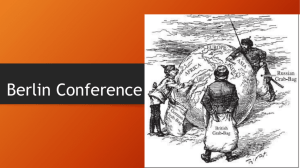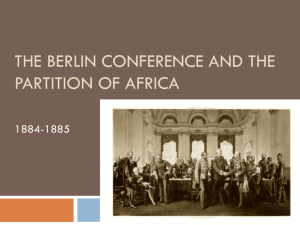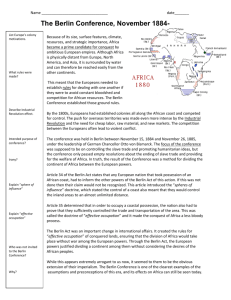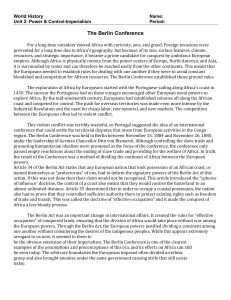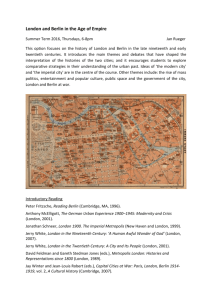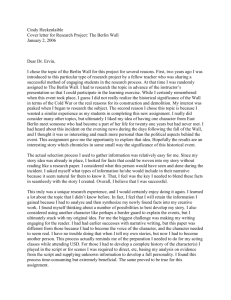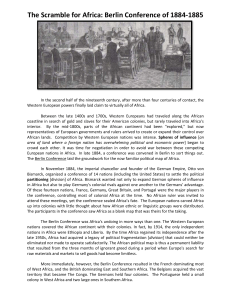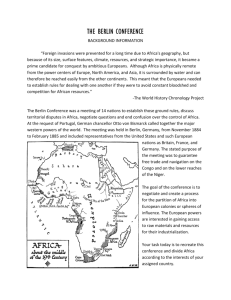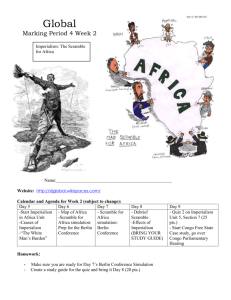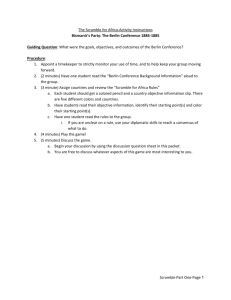The Berlin Conference Reading
advertisement
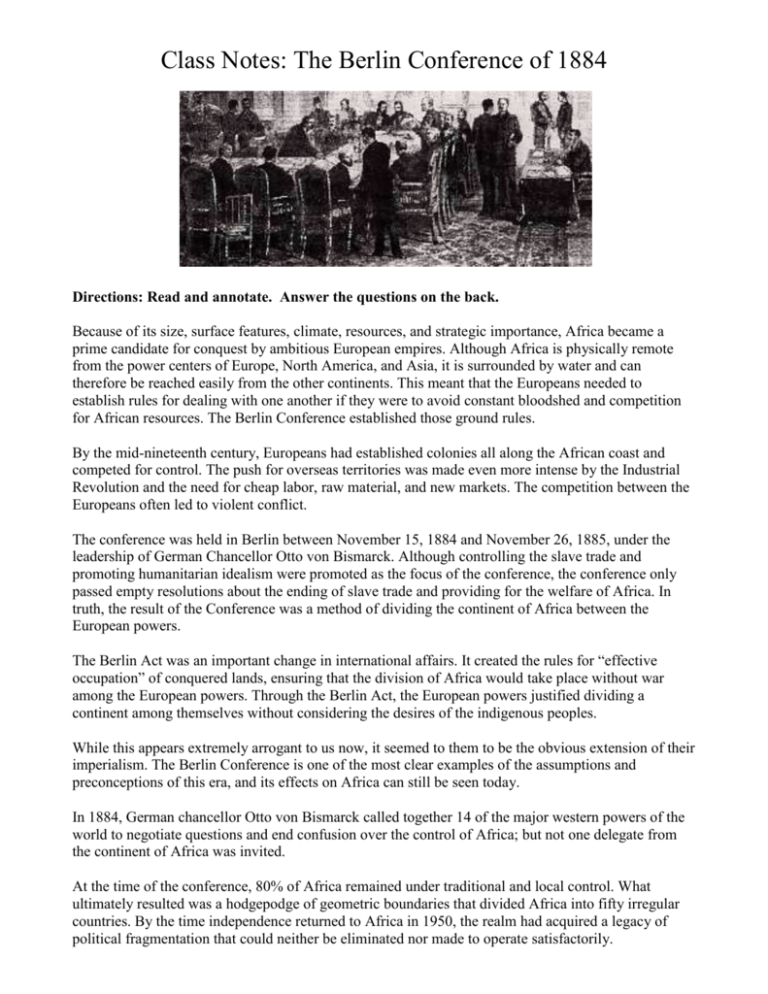
Class Notes: The Berlin Conference of 1884 Directions: Read and annotate. Answer the questions on the back. Because of its size, surface features, climate, resources, and strategic importance, Africa became a prime candidate for conquest by ambitious European empires. Although Africa is physically remote from the power centers of Europe, North America, and Asia, it is surrounded by water and can therefore be reached easily from the other continents. This meant that the Europeans needed to establish rules for dealing with one another if they were to avoid constant bloodshed and competition for African resources. The Berlin Conference established those ground rules. By the mid-nineteenth century, Europeans had established colonies all along the African coast and competed for control. The push for overseas territories was made even more intense by the Industrial Revolution and the need for cheap labor, raw material, and new markets. The competition between the Europeans often led to violent conflict. The conference was held in Berlin between November 15, 1884 and November 26, 1885, under the leadership of German Chancellor Otto von Bismarck. Although controlling the slave trade and promoting humanitarian idealism were promoted as the focus of the conference, the conference only passed empty resolutions about the ending of slave trade and providing for the welfare of Africa. In truth, the result of the Conference was a method of dividing the continent of Africa between the European powers. The Berlin Act was an important change in international affairs. It created the rules for “effective occupation” of conquered lands, ensuring that the division of Africa would take place without war among the European powers. Through the Berlin Act, the European powers justified dividing a continent among themselves without considering the desires of the indigenous peoples. While this appears extremely arrogant to us now, it seemed to them to be the obvious extension of their imperialism. The Berlin Conference is one of the most clear examples of the assumptions and preconceptions of this era, and its effects on Africa can still be seen today. In 1884, German chancellor Otto von Bismarck called together 14 of the major western powers of the world to negotiate questions and end confusion over the control of Africa; but not one delegate from the continent of Africa was invited. At the time of the conference, 80% of Africa remained under traditional and local control. What ultimately resulted was a hodgepodge of geometric boundaries that divided Africa into fifty irregular countries. By the time independence returned to Africa in 1950, the realm had acquired a legacy of political fragmentation that could neither be eliminated nor made to operate satisfactorily. Questions to Answer. You may write on this piece of paper. 1. List the reasons why Europeans wanted to take over Africa. 2. Summarize in your own words. What was the Berlin Conference? 3. What agreements came out of the Berlin Conference? 4. What considerations were made by the Europeans to the native Africans? 5. How did the decisions made at the conference change Africa?
